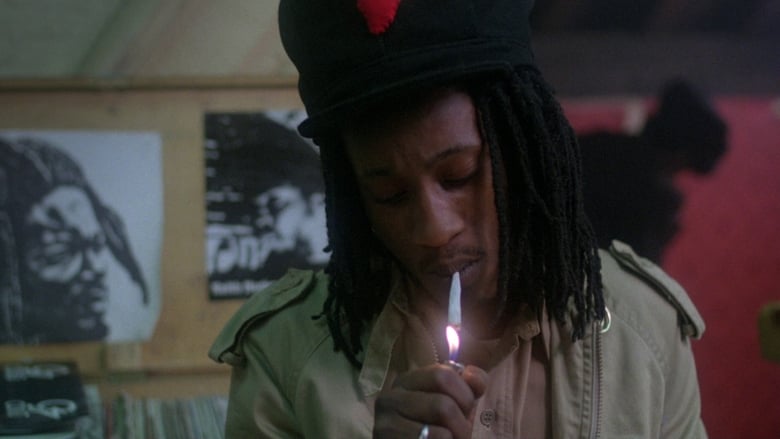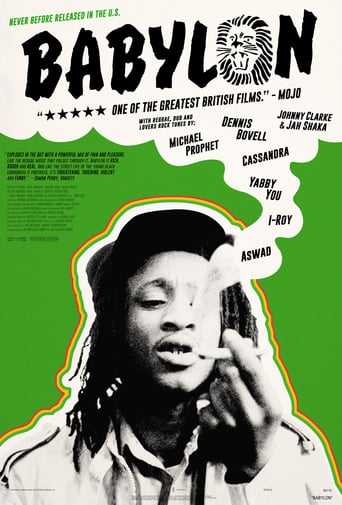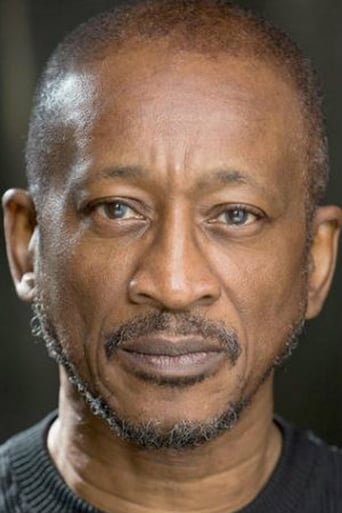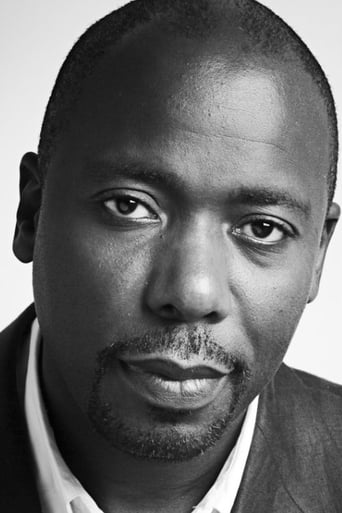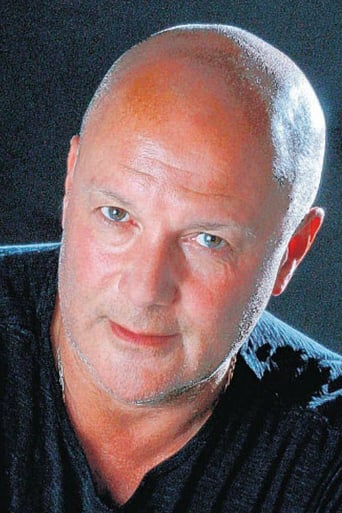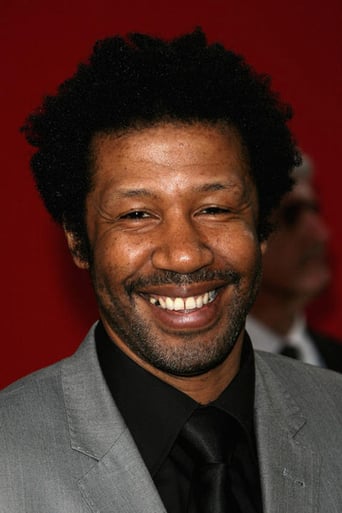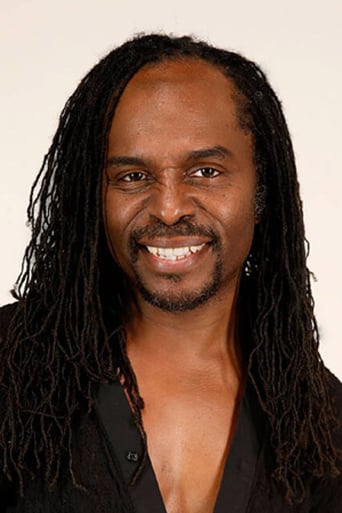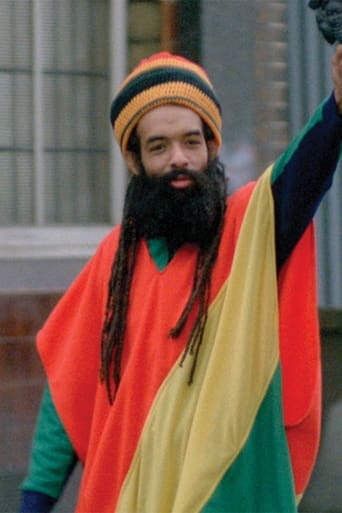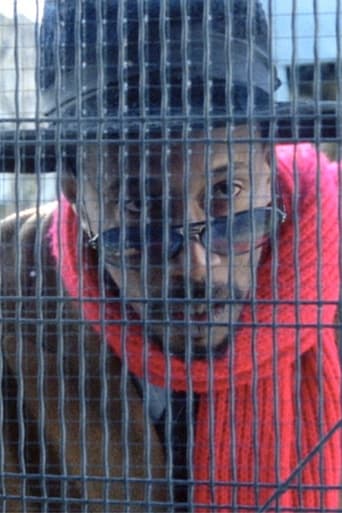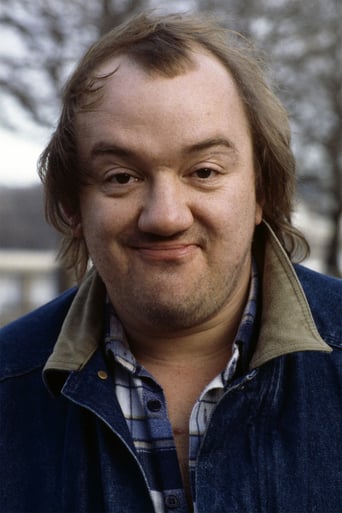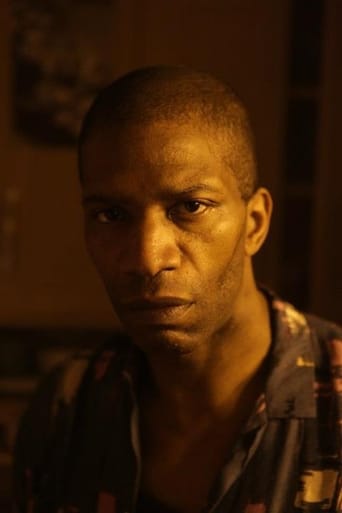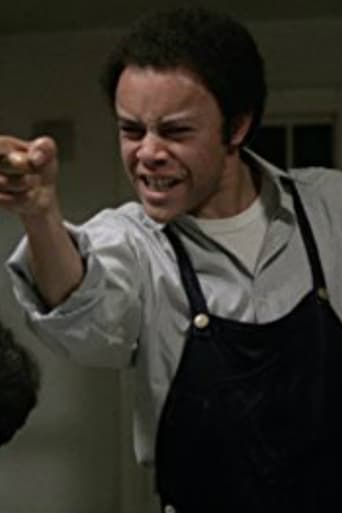Drama telling the story of Blue, a young man of Jamaican descent living in Brixton in 1980, as he hangs out with his friends, fronts a dub sound system, loses his job, struggles with family problems and has his friendships tested by racism.
Reviews
Best movie of this year hands down!
Excellent adaptation.
A Disappointing Continuation
A clunky actioner with a handful of cool moments.
Nice to see via the comments and the message board that this film was held in high regard . I remember it well . It's one of those tough , gritty realist type movies broadcast late night on Channel 4 sometime in the late 1980s when that particular channel was interested in showcasing challenging home grown talent . In those days my peers and myself would nearly always be watching movies on VHS cassette and would involve people with American accents suffering terrible and gory deaths via mad axemen and monsters . It'd be a novelty in seeing a serious film , never mind a British produced one and this type of movie in look and feel would be occasionally attempted by Ken Loach or Alan Clarke . That said perhaps the novelty of seeing BABYLON gave it a reputation that possibly isn't that deserved As I started to watch it again I really found asking myself I'd be able to make it all the way through to the end credits down to one reason - the characters talk in heavy Jamaican tones . I did recognise the Jamaican phrase for " Good afternoon . How are you my friend ? " which is " Hey mon " but after that I was totally puzzled as to the conversations taking place . Just about every black character in the film talks like that with the ironic exception of the one bloke who does look like he's just stepped off the boat from Kingston and you're now able to understand what's going on to an extent. Nice to know he also has a white friend because that means there's at least two people I can understand . There's other white people too but they're incapable of opening their mouths without a tirade of racial insults spewing from it . And this is the problem with BABYLON - there's hardly one single likable or sympathetic character in it and is rather dated in every aspect One can see the point the film is making . It was produced in 1980 , the year before the Brixton riots and a time when institutionalized racism was the norm and what BABYLON deserves very great credit for is in its sophistication in not painting society as " White people = rabid racist oppressors , Black people = poor innocent victims " . What I mean by this is that several white characters mouth racist insults but you see them having a motive for being angry . A mechanic walks out in the middle of work earning the ire of his employer . If the boss was truly racist would he have given a black kid a job in the first place ? A group of reggae fans are having all night parties in a lock up garage thereby upsetting the residents nearby . Now if the actions were done by a group of white chavs the outcome would possibly have the same outcome ? The police are painted as racist bully boys but you'd to have to a very naive reader of The Daily Mail not to believe there's a large element of truth in this especially taking on board the location and the period it's set in and explains to an extent the motives of most of the black characters who do have very large chips on their shoulders. This level of sophistication where the audience are allowed to make up their own minds as to the causes of racism or indeed if we're racist simply because we're human and want to belong to our own tribe is left open ended but is striking in the refreshing and ambiguous way it's put forward . Also interesting that a couple of characters are portrayed as being violent " queer bashers " and if you really want to really confuse and upset a bleeding heart liberal just show a couple of black guys beating up a homosexual . You wouldn't get that in EASTENDERS BABYLON isn't a great film and because of the language problem makes it rather inaccessible for a mainstream audience along with the dated look . It is however a good example of a British realist drama and despite being a political film is thankfully free of the political overstatement that Loach might have brought to the story . I've also had a look at the resume of the director Franco Rosso and was surprised and a little sad that his career didn't really progress beyond this movie because with a couple of more films under his belt I'd be very interested in seeing what sort of director he'd be like as he matured . As it stands BABYLON seems a career highlight of a far too short career
There are two pivotal exchanges in Babylon, each involving the most volatile member of the 'Ital Lion' sound system. On being informed that "this was a lovely area before you came here," Beefy, played by a young Trevor Laird, replies (in pure saarf London tones) "This IS my country, lady and it's never been lovely, it's always been a tip for as long as I can remember." The second, equally telling exchange occurs when Ronnie (Howman of 'Brush Strokes' fame) attempts to point out that not all "his kind" are evil, after the destruction of the Lion's DJ equipment by marauding racists. "I'm a National Front guy?" he protests. "Dem a deal in pure wickedness, man!" Beefy, seeing red and using a pronounced Jamaican accent this time, informs him "Don't talk black, white man" and brutally headbutts him to the ground. As Frantz Fanon wrote in 1952's 'Black Skin, White Masks', "It is this automatic manner of classifying him, imprisoning him, decivilising him, that makes him angry." It is precisely these issues of cultural identity, and of cultural preservation, that lie at the heart of Babylon, an early and important milestone in black British film-making. Filmed in and around Deptford, Lewisham and Brixton, it's a social-realist portrait of young, working-class, second-generation black Londoners under siege. As Horace Ove's immediate forebear Pressure foreshadows the Notting Hill riots of 1976, so Babylon seems blessed (or cursed) with equal prescience, fermenting with the kind of racial tension that would spectacularly ignite in Britain's inner cities a few months after its release.Sacked by his racist boss, two-timed by his girlfriend, beaten up by plain-clothes police - and not least, after his sound system is smashed up, dreadlocked MC 'Blue' (Aswad's Brinsley Forde) finally loses it and stabs a likely white offender with a screwdriver. All the same, he manages to get to the semi-finals of a sound competition just in time to blow away their rival - the otherwise unassailable Jah Shaka, cameoing as himself - with a borrowed sound system and a well-played ace: Aswad's mighty 'Warrior Charge', snake-hip slinky and triumphal as a lion's roar.In the tradition of classic music movies, this hugely influential tune is key to the entire film; what the whole damn thing hinges on. As Lloyd Bradley writes in 'Bass Culture', his seminal history of reggae, "'Warrior Charge' was the sound's secret weapon, the tune which, entirely believably, was going to annihilate all comers in the dancehall." As an army of police mass outside, and through a blue fug of ganja smoke, the wanted man toasts a plea for liberation: "Four hundred years it's the same kind of living/Pain and misery all that Babylon is giving/I can't take no more of that, no I can't take no more of that", a chant taken up by the crowd, as the police sledgehammer at the dancehall door in time with the beat, in a final and brilliantly juxtaposed mimesis.Here, for the first time in British cinema, was a portrayal of Rastafarianism and British reggae culture at odds with the 'multi-racist' society and state. Following the death of the Emperor Haile Selassie in 1975, the Rastafarian religion had steered a more secular path: a politicised doctrine emphasising passive resistance against the agents of subjugation and oppression. The 'dread' music and culture highlighted in Rosso's film is seen as a catalytic, liberating force, during an era of 'Sus' stop-and-search laws, and in which reggae clubs and blues parties were being systematically shut down. Attack the sound and you attack the community.Babylon has fewer ideas than Pressure, but makes up for it with sheer sound and fury, galvanised by the punk era; as Alexander Walker writes in 'National Heroes', this "was not a mediation movie but a red alert". Despite its uncompromising outlook it should not be too surprising that Babylon was directed, produced and written by whites, given the gated nature of the industry; that it owes something to the previous year's Quadrophenia in its thematics and narrative arc may also have been unavoidable, given its screenwriter co-wrote both films.Five years is a long time in subculture: this is a tauter film than Pressure, pitched at a transformed generation: younger, more self-assured. Pressure's check suit jackets and pork pie hats have given way to casual sportswear, dreads and the African tricolour.The sounds have become harder too - "hard like concrete" - drenched in reverb, echo and searing sonic sun splashes, with Shaka's soundsystem making judicious use of the 'Synare 3' drum machine. Babylon's core viewers would have less time for speechifying, favouring the immediate impact of a wardrobe-sized speaker cabinet over Pressure's Black Panther-style orations.Not that audiences got much of a chance to catch it: panicked that black Britons under the age of 18 would misread the film as an incitement to violence, the BBFC saddled it with a limiting 'X' certificate. BBFC secretary James Ferman reassured, "We all believe that it will become a classic of its type and be around for many years, so that black youngsters who cannot see it today will have their chance before very long." But following its cinema run, Babylon went underground. With no VHS or DVD release (even the soundtrack wasn't reissued on CD until 2005), the film instead collected a cult following via second-generation recordings, taped off the telly during either of its two screenings on Channel 4 during the 1980s.At time of writing, to be young, British, working class, of any racial origin, and not to "talk black" is to deviate from the norm. Back in 1975, Horace Ove proposed subtitling certain passages of dialogue in Pressure to aid the "language problem"; a request turned down by distributors on the grounds that "what they're saying isn't very important - after all, we get the gist of it." For Babylon's UK DVD release, the subtitles accompanying the esoteric vernacular have been entirely removed.
This was a film of it's time, I am one of the lucky ones who saw it when it premiered the one and only time on Channel 4 back when it was a new station. It features great performances by most of the cast and outstanding ones from Brinsley Forde, Karl Howman & Trevor Laird. The soundtrack to the movie is excellent and also brings back some fond memories of what life was like back in that time. People not from the UK or who are not familiar with Brixton get a real eye opener about what life for black youths, but black young men in particular was like. The deprivation, the listlessness and the treatment by the police, treatment that led ultimately to the riots in ensuing yearsI cannot understand why this film wasn't released on DVD, the 25th anniversary 2 years ago would seem to have been a great opportunity. Perhaps we need a petition on the .gov.uk site to implore the powers that be to set and keep the date for release!!!Perhaps we should arrange a big screening somewhere in the west end. I highly recommend this film. Definitely one for the collection.
Even now after 26 years of the film being released, I can still remember many of the scenes. Me and my brother love to run of the one liners like "Sprat and be d' banker" and "....an I doh wa fi subsidise you..". This film is an absolute classic and I would give my right hand to find this movie on DVD. This is my most memorable film from the 80's and every time I see the white dude doing the Flash adverts, I remember when Beffy did buck him down after he was chatting about the "pure wickedness man...". There wasn't too many films that depicted the racial tensions that existed between blacks and whites living in London during the 80's. I was only ten years old when this was released, but this film is etched firmly in my memory.Big respect to the actors and producers of this film.
Top Streaming Movies











